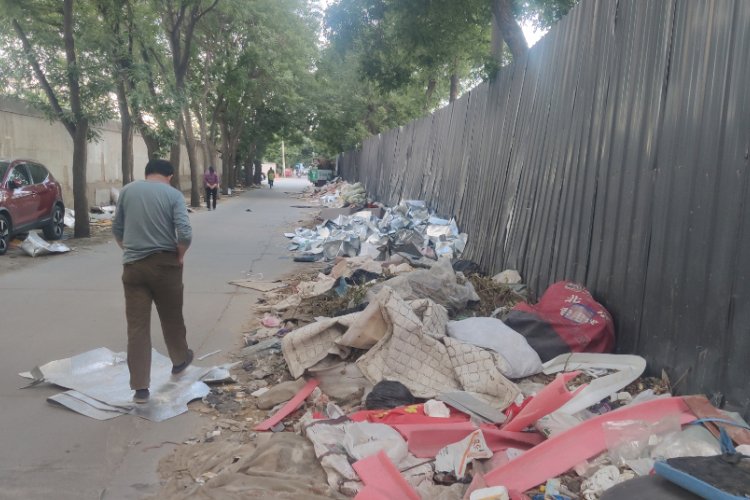Four Legs Good: The Path to Compassionate Farming
When it comes to animal cruelty as relates to dining, media attention tends to focus on the notorious practices behind expensive dishes like shark fin soup and foie gras. Activists such as Jeff Zhou, the China representative for Compassion in World Farming’s (CIWF), would remind us that equal suffering exists in the nation’s pork and poultry production industries.
“Whether it’s pigs or chickens, limited space is usually the worst issue,” Zhou says of the small battery cages or cement floor pens used to house such livestock. “The animals don’t have room to perform natural behaviors, so they develop aggression out of frustration.”
Most critics blame the farmers – calling them ignorant, uncultured, or heartless. Bob Wang, a Taiwanese livestock entrepreneur, kickstarted WPK Pork four years ago with the aim of raising freerange pigs – using no chemicals or close quarters, just wide-open pastures. Over the years, Wang has met with the heads of many factory farms to debate industry practices.
“They have lots of case studies and analytical data,” Wang says of his corporate counterparts. “But in their eyes, pigs are merely moving meat.” Zhou agrees that that outlook must change, but adds that the farmers shouldn’t shoulder all the blame. We asked Wang and Wan Xiqing (a lifelong pig farmer who coordinates CIWF educational workshops for his peers) to list the grimmest details of Chinese factory farming and then to offer alternatives that can bring decency and dignity back to the nation’s barnyards.
What are some of the everyday discomforts that average Chinese farm animals face?
Jeff Zhou: When I visited intensive factory farms, I usually saw chickens in cages too small to let them spread their wings. Their claws get deformed after long periods of standing on the cage’s iron wire base. They’re also usually de-beaked, the upper layer cut off to keep them from pecking at each other aggressively. But this also prevents them from eating easily, and their beaks end up growing twisted.
What about pigs?
JZ: In the wild, pigs usually spend most of their time burrowing around, building nests for their young. In pens and cages, all they have room for is sleeping and eating. That doesn’t take up much of their time, so they often end up turning on each other. In order to keep them from biting each others’ tails [such that] they bleed on and infect each other, farmers have to clip tails and teeth pre-emptively.
Wang, how does your free-range farming differ?
Bob Wang: I wanted to start a farm that was clean and safe, with high market value. No growth hormones, no antibiotics, completely natural.
JZ: I can’t say Bob’s farm is economically sustainable yet, because his “all-natural” process drives the price of his product up. But I think in the long term it will be sustainable, as long as it catches on with more customers and farmers.
So you’re saying farmers shouldn’t be scapegoated – because the lack of economically viable alternatives to conventional farming?
JZ: Yes, it’s not fair to blame individuals for these problems. When I was a boy, my parents brought dog meat home, and we were all happy to eat it. How can you combat hunger? The small-operation farmers living in the countryside are living in very stressful conditions and often don’t get much benefit from their labor. You can’t expect them to think of animal welfare on their own. Bigger factory farmers, of course, should already have better standards. But when they ignore animal welfare, and the authorities don’t teach them a lesson, who can blame others for following the same trend?
Wan Xiqing: The government should take the lead in educating the farmers about the importance of animal welfare. Certain departments should be set up to provide livestock training and renovation techniques. Customers also have a duty to help build up a market demand for animal-friendly products.
And what should China’s farmers be doing differently?
WX: They should reduce the density of their pens, and add outdoor sport spaces for animals to move around and get some exercise.
JZ: I agree. Even the poorest farmers can also twist grass into ropes, for pigs to play with and nibble on for fiber. Little things like that can go a long way to improving their lives.
BW: Customers also need to be educated about animal welfare. I would prefer to let kids and their parents witness how commercial farms are operated. Then they can see the negative effects for themselves.
This article originally appeared on page 57 in the February issue of the Beijinger.
Photo courtesy of Jeff Zhou
Related stories :
Comments
New comments are displayed first.Comments
![]() admin
Submitted by Guest on Tue, 03/26/2013 - 12:49 Permalink
admin
Submitted by Guest on Tue, 03/26/2013 - 12:49 Permalink
Re: Four Legs Good: The Path to Compassionate Farming
any idea where we can get compassionately-raised meat in Beijing?
Validate your mobile phone number to post comments.






